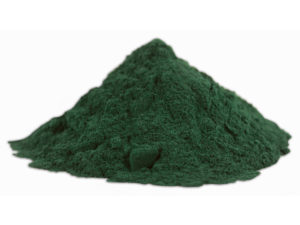Contents
Uses
- They are used as a source of dietary protein, B-vitamins, and iron. They are also used for weight loss, attention deficit-hyperactivity disorder (ADHD), hayfever, diabetes, stress, fatigue, anxiety, depression, and premenstrual syndrome (PMS) and other women’s health issues.
- Some people use blue-green algae for treating precancerous growths inside the mouth, boosting the immune system, improving memory, increasing energy and metabolism, lowering cholesterol, preventing heart disease, healing wounds, and improving digestion and bowel health.
Benefits
- Blue green algae have a high protein, iron, and other mineral content which is absorbed when taken orally. Blue-green algae are may offer benefits for the immune system, swelling, and viral infections.
Cautions
- Pregnancy and breast-feeding: Not enough is known about the use of blue-green algae during pregnancy and breast-feeding. Stay on the safe side and avoid use.
- “Auto-immune diseases” such as multiple sclerosis (MS), lupus (systemic lupus erythematosus, SLE), rheumatoid arthritis (RA), pemphigus vulgaris (a skin condition), and others: Blue-green algae might cause the immune system to become more active, and this could increase the symptoms of auto-immune diseases. If you have one of these conditions, it’s best to avoid using blue-green algae.
- Phenylketonuria: The spirulina species of blue-green algae contains the chemical phenylalanine. This might make phenylketonuria worse. Avoid Spirulina species blue-green algae products if you have phenylketonuria.
- Some blue-green algae products are grown under controlled conditions. Others are grown in a natural setting, where they are more likely to be contaminated by bacteria, liver poisons (microcystins) produced by certain bacteria, and heavy metals. Choose only products that have been tested and found free of these contaminants.
Interactions
Moderate Interaction Be cautious with this combination:
- Medications that decrease the immune system (Immunosuppressants) interacts with BLUE-GREEN ALGAE: Blue-green algae might increase the immune system. By increasing the immune system, blue-green algae might decrease the effectiveness of medications that decrease the immune system.
- Some medications that decrease the immune system include azathioprine (Imuran), basiliximab (Simulect), cyclosporine (Neoral, Sandimmune), daclizumab (Zenapax), muromonab-CD3 (OKT3, Orthoclone OKT3), mycophenolate (CellCept), tacrolimus (FK506, Prograf), sirolimus (Rapamune), prednisone (Deltasone, Orasone), corticosteroids (glucocorticoids), and others.
Other names
Blue-green algae
References
Source: WebMD, “Blue-Green Algea”, www.webmd.com/vitamins-supplements/

